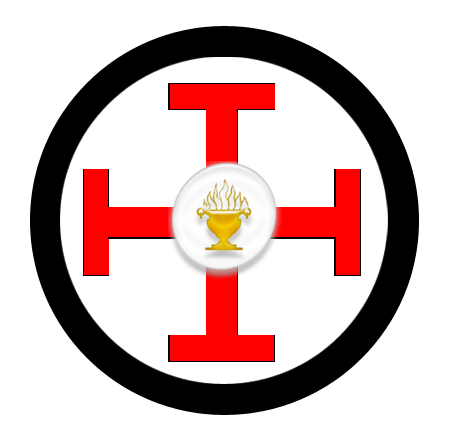Zartian Agathism
Agathon is the Greek word for 'the Good'. Agathism is the conscious pursuit of the Good.
Agathists believe there is such as things as 'the Good' and that we should make an effort to connect with it, to achieve it, to make it manifest in the world in which we live.
Agathists believe that only the Good itself is unarguably and perfectly Good and everything else is for us to judge as to how good it is.
The Agathoi are 'the good ones' who are manifestations of the Good. Zartian Agathists give twelve Agathoi in particular a pride of place.
Zartian Agathists trace the origins of their tradition to the religious philosopher Zoroaster who lived about 3000 years ago in the territory of the Iranians. He composed a text known as the Songs of Zoroaster which expressed his understanding of the workings of Good and Evil. This text has been passed down to us and forms the foundation text of Zartianism.
In addition Zartians recognise three further philosophers whose work has proved the most useful to those seeking to understand the nature of the Good. These three are Gotama ("the Buddha"), Plato and Aristotle.
Zoroaster, Gotama, Plato and Aristotle together are called the Tetramagi or four wise ones and Zartian Agathists are encouraged to mentally grapple with their work as an aid to developing their own understanding of the Good. Their work has value to help us, but we do not consider that everything they say comes out of perfect wisdom. The Tetramagi are human 'thought-provokers' , not divine angels, and we still must do our own work to make our sense of reality.
To pursue the Good we must understand the nature of reality. We need to know the different elements that constitute the world and how they interact. Runes are such 'secret' elements which we can name. There is no definitive list of runes that all Zartians use, but it is a task of Zartian Agathists to develop their runic knowledge.
The Agathist path includes efforts to change ourselves and to change the world beyond us for the better. There are lots of potential ways that we might do this and Agathists strive to find the most useful paths for them to follow from whatever source it comes.
Zartianism
Zartian means Zoroastrian from Zartus a shortened spelling of the name Zarathustra (Zoroaster). It indicates that Zoroaster is the founder of our school of Agathism. It also indicates an ethically dualistic Agathism where Agathon (Good) is considered to have an active opponent Kakon (Bad/Evil). This is different from Platonic Agathism where only the Good is considered real and the Bad is thought of just as an absence of the Good. The term Zartian also indicates a modern neo-Zoroastrianism which doesn't keep to all the traditions of the surviving Zoroastrians of Iran and India.
Special Days
We especially celebrate March 26th as 'Zartus Natus' or Zoroaster's birthday and September 29th as Mihrakana ("Feast of Mithras") - a time for celebrating the Zartian movement and re-evaluating our individual work for it.
Sometimes we might also celebrate October 29th as Cyrus Day - a time to celebrate good world goverment and 5th November as Atarkana - ("Feast of Fire") - a time to celebrate social justice and wellbeing and efforts towards it.
Ad bonum tendimus!
Updated Feb 2023 CE
|
|

